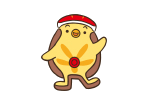Company History
The history of a pioneer of bicycle parts founded in 1948

A history of craftsmanship inheriting the founder’s passion
Try all of the possibilities of a material to contribute to society through manufacturing. The following is the 50-year history of OGK as a pioneer of bicycle parts, built upon the passion of its founder passed down to this day.
- 1940-
-
- 1948
- Osaka Grip Kako (English name: Osaka Grip Mfg. Co., Ltd.) is founded (Capital: 200 thousand yen)
Shou Kimura becomes the first president
- 1950-
-
- 1950
- Develops grips for the Southeast Asian market
Receives “industrial alcohol user permit” from the Ministry of International Trade and Industry (current Ministry of Economy, Trade and Industry)
- 1953
- Applies for new invention and right to a method for attaching metal caps
Begins manufacturing the aforementioned product
- 1955
- Keiu Kimura becomes president
Is granted the industrial property right No. 1
Manufactures PVC grips using the press method
- 1957
- Switches to manufacturing by the paste resin injection method
- 1960-
-
- 1960
- Develops grips formed by injection molding
Installs and begins operating the first injection molding machine
- 1961
- Installs the second injection molding machine
- 1962
- Succeeds in the self-manufacture of PVC raw material
Builds a mold making and injection molding factory
Develops integrated pedal for young children’s bicycles
- 1963
- Develops auxiliary wheels for young children’s bicycles
Develops the 90 mm diameter PVC wheel
- 1964
- Develops bicycle helmets
Installs an automatic packing machine
Develops the MK helmet. OGK subsequently manufactures and markets MK helmets type 2, 3, and 5
- 1966
- Develops basket for young children’s bicycles
- 1967
- Develops child seat for bicycles
Installs 30 oz. injection molding machine
Begins manufacturing and marketing dress guards
- 1968
- Increases capital to 12 million yen
- 1970-
-
- 1970
- Develops the 150 mm diameter PVC wheel
Enters the shopping cart industry
Begins development of self-sealing tire by using injection molding machine
Is recognized for its contribution to exports by the Ministry of International Trade and Industry (current Ministry of Economy, Trade and Industry)
- 1971
- Installs an EVA rotary molding machine
Develops EVA wheel
- 1972
- Develops windshield for bicycles
Begins manufacturing and marketing baskets for tricycles
Builds the Nishitsutsumi company condominium
- 1973
- Installs the first twin-head injection molding machine
Completes the construction of Nishitsutsumi warehouse
- 1974
- Establishes the technology for half-face helmets
- 1975
- Installs the first tire winding machine
Dominates almost the entire domestic market of auxiliary wheels
Participates in the New York City Cycle Show in the United States for the first time. Thereafter, OGK has participated in every Cycle Show
- 1976
- Begins marketing windshields for bicycles
- 1978
- Increases the number of twin-head molding machines to five. Removes the rotary molding machine
First helmet boom
- 1979
- Begins manufacturing and marketing emergency road flares for night/daytime use
Begins developing glass fiber wheels
- 1980-
-
- 1980
- Markets earmuffs
Succeeds in the commercialization of glass fiber wheels for BMX. Begins exporting to the United States
- 1981
- Develops jet-style helmet
Installs a 650 ton injection molding machine
Establishes Korea OGK Co., Ltd.
- 1982
- Establishes OGK HANBAI Co., Ltd. (Current OGK KABUTO Co., Ltd.)
Establishes a helmet assembly factory
Begins manufacturing and marketing sports helmets
- 1983
- Develops the SH-202, which becomes the first Japanese official helmet of the Japan Amateur Cycling Federation
Begins manufacturing and marketing semi-jet helmets
Begins manufacturing and marketing bicycle helmets for the American market
The bicycle helmet passes the U.S. CPSC Product Safety Standards
Begins marketing baskets for children bicycles
Is recognized a blue-chip company
- 1985
- Begins manufacturing and marketing unicycles
Begins manufacturing soft shell by using blow molding
Ships the first soft-shell helmet
Second helmet boom
- 1987
- Launches two-colored baskets for adult bicycles
OGK factory receives certification of conformity with the Japanese Industrial Standards
OGK factory receives certification of conformity with the SG Standards
- 1988
- Begins development and export of soft shell by using injection molding
OGK’s unicycle becomes official unicycle of the Japan Unicycling Association
Receives investment from Osaka Small and Medium Business Investment & Consultation Co., Ltd.
Increases capital to 96 million yen
- 1989
- Completes the construction of Mizuhai Factory
- 1990-
-
- 1990
- Changes the company name to OGK CO., LTD.
- 1991
- Completes the Mizuhai Factory automatic molding line for glass fiber wheels
- 1992
- Expands Mizuhai Factory
- 1993
- Installs a 1450 oz. two-color injection molding machine
Begins marketing eco wheels
Hidemoto Kimura becomes president
- 1994
- Successfully develops rattan-like plastic basket
Begins marketing ceramic fiber wheels
- 1995
- Begins marketing the hollow-section wheel Stream V
- 1996
- Begins marketing transparent baskets
- 1997
- Enters the welfare industry
- 2000-
-
- 2001
- Establishes Kunshan OGK Co., Ltd.
Starts manufacturing and marketing FBC-003, a molded-plastic integrated front child seat
Starts manufacturing and marketing RBC-005, a high-back rear child seat
- 2002
- Starts manufacturing and marketing RBC-003, a molded-plastic integrated rear child seat
Introduces and starts marketing free-carry system (easily mountable/demountable luggage carrier)
- 2005
- Starts manufacturing and marketing RBC-007DX, a deluxe rear child seat with headrest
- 2008
- Begins manufacturing and marketing products for small children and child rearing related products (OGK baby)
- 2010-
-
- 2011
- Completes the new head office
Starts manufacturing and marketing RBC-011DX, a comfort rear child seat with headrest
- 2013
- Holds OGK’s first private exhibition
- 2015
- Installs an 850 ton injection molding machine
- 2016
- Establishes OGK Europe B.V.















